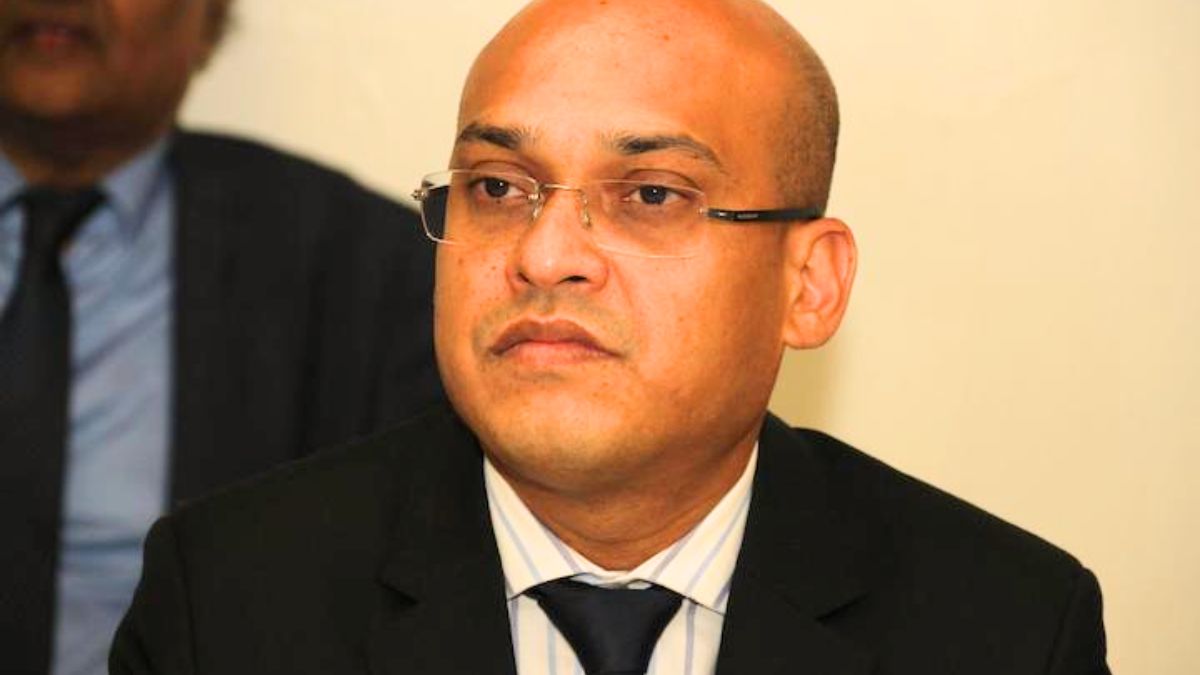News
Salary Gap Sparks Pressure: Soodesh Callichurn Faces Criticism

The National Wage Consultative Council’s report, originally scheduled for release in March 2024, is still awaited with no official explanations for the delay.
Meanwhile, Statistics Mauritius has reported that monthly household expenses have increased from Rs 28,750 in 2017 to Rs 41,870 in 2023.
For the past month, the recommendations of the National Wage Consultative Council to address salary disparities caused by the introduction of the Guaranteed Minimum Revenue of Rs 17,000 per month for 141,700 employees in the public and private sectors have been highly anticipated.
In an official statement dated December 7th of last year, Minister of Labour and Industrial Relations Soodesh Callichurn made a formal commitment with the deadline of March 2024 announced.
Callichurn went even further by stating that “salary will also be calculated according to occupation”.
He indicated that a truck driver, employed in any professional sector, would earn the same salary.
This would be the case across all economic sectors. Public sector employees are expecting an announcement regarding the next Pay Research Bureau (PRB) report.
However, there has been no mention of this issue at the May 1st Alliance Morisien meeting in Vacoas.
Some union leaders, including Reeaz Chuttoo of the Confederation of Workers in the Public and Private Sectors (CTSP), are urging the government not to give in to objections and whims of employers and Business Mauritius regarding the issue of post-Guaranteed Minimum Revenue salary alignment.
According to information gathered by Week-End from well-informed sources, the issue of revising salary disparities appears to be more complex than anticipated, with risks of anomalies that will need to be addressed subsequently.
These sources suggest that during consultations with union representatives, authorities have indicated that at least a three-month period will be needed to stabilize the anomalies after the new salary scales are adopted. This is seen as a kind of “cooling off period for grievances.”
It is currently unclear whether the Minister of Labour will proceed with this salary measure on his own or if it will be included in the budgetary arsenal of the Minister of Finance ahead of the upcoming elections.
On the other hand, the latest preliminary details from Statistics Mauritius’ Household Budget Survey are entering the debate, as the cost of living will be a key theme in the electoral campaign.
From 2017 to 2023, the average household expenses have increased from Rs 27,750 per month to Rs 41,870 for a household size of 3.2 members.
Additionally, the household disposable income, which averaged Rs 36,803 in 2017, was at Rs 55,600 last year.
Over the period from 2017 to 2023, the budget for expenses on various items has shown significant changes according to the latest data from the Household Budget Survey:
- -Food and non-alcoholic beverages increased from Rs 7,160 to Rs 10,480 per month, a 46.4% rise
- -Alcoholic beverages and tobacco rose from Rs 3,100 to Rs 4,450 per month, a +40.8% increase
- -Clothing and footwear increased from Rs 1,320 to Rs 1,720, a 30.3% rise
- -Housing, water, electricity, and gas expenses rose from Rs 3,320 to Rs 4,180, a 29.8% increase
- -Furniture and maintenance increased from Rs 1,670 to Rs 2,010, a 20.4% rise
- -Health expenses rose from Rs 1,090 to Rs 2,050, an 88% increase
- -Transportation costs increased from Rs 4,230 to Rs 6,630, a 15.9% increase
- -Insurance and financial services expenditures rose from Rs 630 to Rs 1,710, a 171.4% increase
- -Leisure and entertainment expenses increased from Rs 580 to Rs 820, a 41.4% rise
- -Restaurant and other services expenses rose from Rs 1,520 to Rs 2,190, a 44.1% increase
- -Personal care and social protection expenses increased from Rs 830 to Rs 1,350, a 62.7% rise
However, one of the few decreases was seen in education expenses, dropping from Rs 1,440 to Rs 1,340, a -6.9% decrease.
The survey also looked at incomes, revealing that the average salary increased from Rs 25,849 in 2017 to Rs 35,575, with an average monthly household disposable income of Rs 55,600. There was also a significant increase in transfers, rising from Rs 4,215 to Rs 14,270 following the revision of pension scales.
Furthermore, the distribution of household income levels showed that one in ten households earns over Rs 100,000 per month, while one in six households earns less than Rs 25,000 per month.
For intermediate income levels of Rs 25,000 to Rs 50,000, and Rs 50,000 to Rs 100,000, the average is one in three households for each category.
Statistics Mauritius pointed out that the proportion of households earning less than Rs 10,000 per month decreased from 8.4% in 2017 to 0.7% in 2023.
Similarly, the proportion of households earning between Rs 10,000 and Rs 20,000 decreased from 23.1% in 2017 to 12.6% in 2023.
Conversely, the share of households earning over Rs 40,000 per month increased significantly.
With these official figures, the upcoming elections are sure to see discussions on these economic trends and their potential impact on voters.
Source: Le Mauricien











